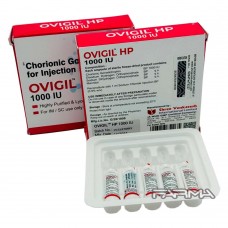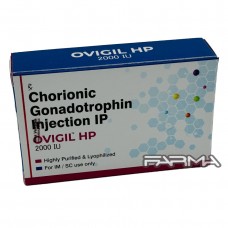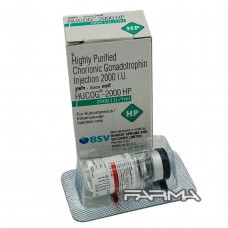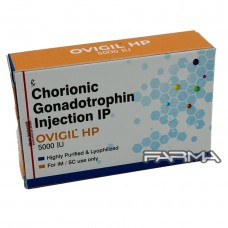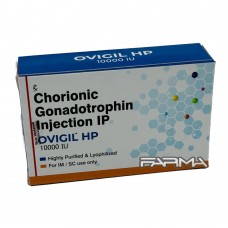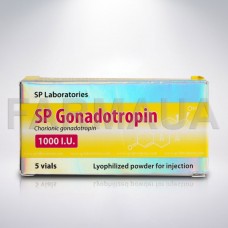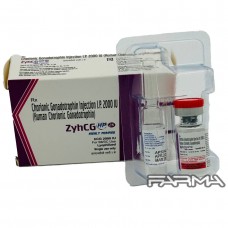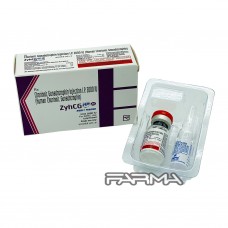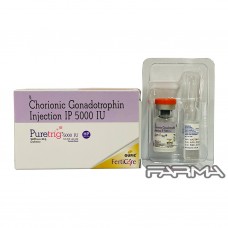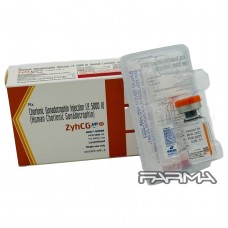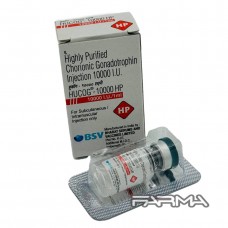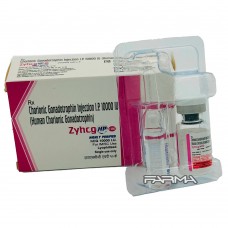Human Chorionic Gonadotropin (hCG) is a hormone produced during pregnancy that plays a crucial role in supporting fetal development. In medical settings, hCG is used for various purposes, including fertility treatment and hormone regulation. Additionally, it is sometimes used off-label in the bodybuilding and athletic community to mitigate the side effects of anabolic steroid use, particularly the suppression of natural testosterone production. Understanding the uses, effects, and considerations of hCG is essential for individuals considering its use, both medically and non-medically.
Mechanism of Action:
-
Luteinizing Hormone (LH) Analog : hCG acts as an analog of luteinizing hormone (LH), a hormone produced by the pituitary gland that stimulates the production of testosterone in the testes in men and triggers ovulation in women.
Medical Uses of hCG:
-
Fertility Treatment : In women, hCG is used in fertility treatment to trigger ovulation in conjunction with other medications such as follicle-stimulating hormone (FSH). In men, hCG may be used to stimulate testosterone production in cases of hypogonadism.
-
Cryptorchidism Treatment : hCG is sometimes used in the treatment of cryptorchidism (undescended testicles) in young boys to stimulate testicular descent.
-
Hormone Regulation : hCG may be used to regulate hormone levels in individuals with certain medical conditions, such as delayed puberty or hormonal imbalances.
Off-Label Uses of hCG:
-
Post-Cycle Therapy (PCT) for Steroid Users : In the bodybuilding and athletic community, hCG is sometimes used off-label as part of post-cycle therapy (PCT) to restore natural testosterone production following anabolic steroid cycles. Anabolic steroids can suppress the body's natural testosterone production, and hCG can help stimulate the testes to produce testosterone, aiding in recovery.
-
Testicular Atrophy Prevention : Continuous use of anabolic steroids can lead to testicular atrophy (shrinkage of the testicles) due to suppressed testosterone production. hCG may be used intermittently during steroid cycles to prevent or minimize testicular atrophy.
Considerations for hCG Use:
-
Dosage and Administration : The dosage and administration of hCG vary depending on the individual's needs and medical condition. In fertility treatment, hCG is typically administered via injection under medical supervision. In the context of steroid use, dosages may vary, and hCG is often administered intramuscularly or subcutaneously.
-
Side Effects : Common side effects of hCG include injection site reactions, headache, fatigue, and mood swings. In men, high doses of hCG may lead to gynecomastia (enlargement of breast tissue) and increased risk of estrogen-related side effects. Proper dosing and monitoring can help mitigate these side effects.
-
Interactions : hCG may interact with certain medications, including gonadotropin-releasing hormone (GnRH) analogs and clomiphene citrate. It is essential to inform healthcare providers of all medications, supplements, and herbal products being taken to avoid potential interactions.
-
Medical Supervision : hCG should be used under the supervision of a qualified healthcare provider, particularly when used off-label in the context of steroid cycles or fertility treatment. Regular monitoring of hormone levels and other relevant parameters is essential to ensure safe and effective treatment.
Conclusion: Human Chorionic Gonadotropin (hCG) is a hormone with various medical uses, including fertility treatment and hormone regulation. It is also used off-label in the bodybuilding and athletic community to mitigate the side effects of anabolic steroid use and aid in post-cycle therapy. Understanding the uses, effects, and considerations of hCG is essential for individuals considering its use, both medically and non-medically. Proper dosage, administration, monitoring, and medical supervision are crucial to ensure the effectiveness and safety of hCG therapy, whether used for fertility treatment, hormone regulation, or steroid cycle support.

